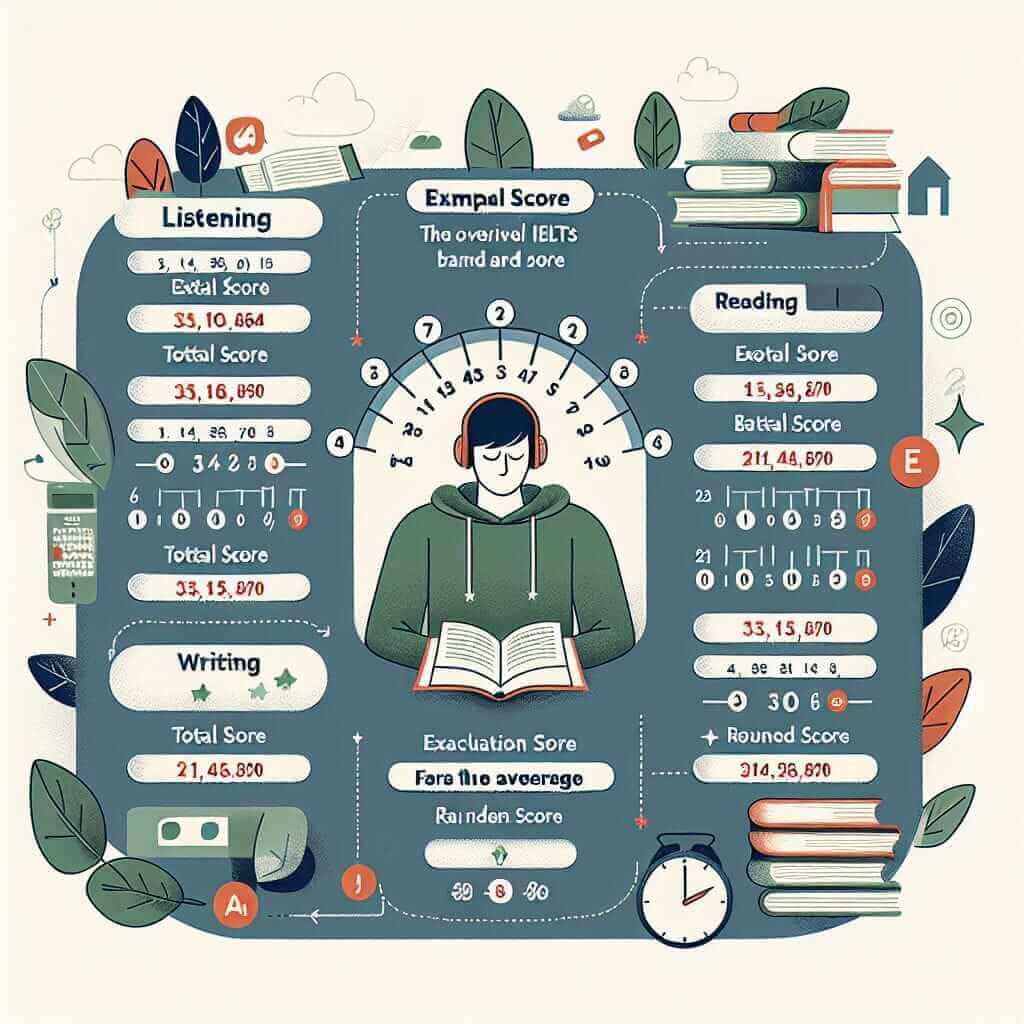As an IELTS instructor with over two decades of experience, I understand the importance of a good IELTS score and the anxiety surrounding it. Many students often ask me, “How is the overall IELTS score calculated?”. Understanding the scoring system can help you focus your preparation and achieve your desired band score. This article will demystify the IELTS scoring system and explain how your overall band score is calculated.
What Does Your IELTS Score Mean?
The International English Language Testing System (IELTS) is a globally recognized English proficiency test. It assesses your abilities in four key language skills:
- Listening: This section evaluates your ability to understand spoken English in various contexts.
- Reading: This section tests your comprehension of written English across different text types.
- Writing: This section assesses your ability to express yourself clearly and accurately in written English.
- Speaking: This section evaluates your fluency, pronunciation, grammar, and vocabulary in spoken English.
Each of these skills is scored on a band scale of 0-9, with 9 being the highest level of proficiency.
Calculating Your Overall IELTS Band Score
Your overall IELTS band score is the average of your individual scores in all four sections. Here’s how it works:
-
Individual Section Scores: Each section – Listening, Reading, Writing, and Speaking – receives a band score from 0 to 9.
-
Total Score: Add up your scores from all four sections.
-
Average Score: Divide the total score by four.
-
Rounding:
- If the average score ends in .25, it is rounded up to the next half band (e.g., 6.25 becomes 6.5).
- If the average score ends in .75, it is rounded up to the next whole band (e.g., 6.75 becomes 7).
- If the average score ends in .125 or .625, it will be rounded down (e.g., 6.625 becomes 6.5).
- If the average score ends in .375 or .875, it will be rounded up (e.g., 6.375 becomes 6.5).
Example:
Let’s say your individual section scores are:
- Listening: 7.0
- Reading: 6.5
- Writing: 6.0
- Speaking: 7.5
Total Score: 7.0 + 6.5 + 6.0 + 7.5 = 27
Average Score: 27 / 4 = 6.75
Overall Band Score: 6.75 is rounded up to 7.0

Importance of Understanding the IELTS Scoring System
Knowing how your IELTS score is calculated is beneficial for several reasons:
- Targeted Preparation: You can identify your strengths and weaknesses and focus your preparation efforts accordingly. For example, if your writing score is lower than desired, you can dedicate more time to improving your writing skills.
- Realistic Goal Setting: Understanding the scoring system helps you set achievable goals.
- Reduced Anxiety: Knowing what to expect can help alleviate test-day anxiety.
Tips for Improving Your IELTS Score
- Practice Regularly: Consistent practice is key to improving your English language proficiency. Use practice tests and sample questions to familiarize yourself with the test format and question types.
- Focus on Your Weaknesses: Identify areas where you need improvement and dedicate more time to those skills.
- Seek Feedback: Ask your teacher or tutor for feedback on your performance. This will help you understand your errors and improve your skills.
- Read Widely: Reading extensively in English can help you expand your vocabulary, improve your grammar, and enhance your comprehension skills.
Conclusion
Understanding how your IELTS score is calculated is essential for effective preparation and achieving your desired band score. By focusing on your individual needs, practicing consistently, and seeking feedback, you can increase your chances of success on the IELTS exam. Good luck!